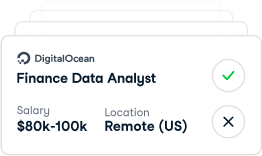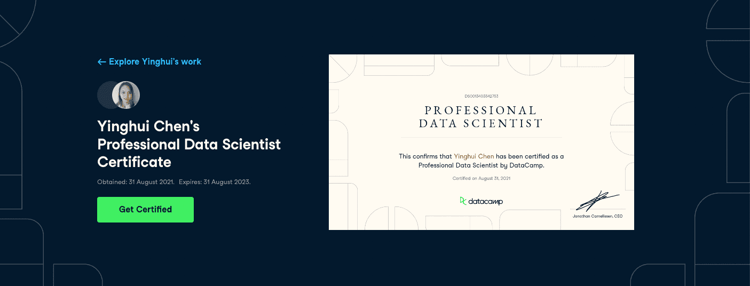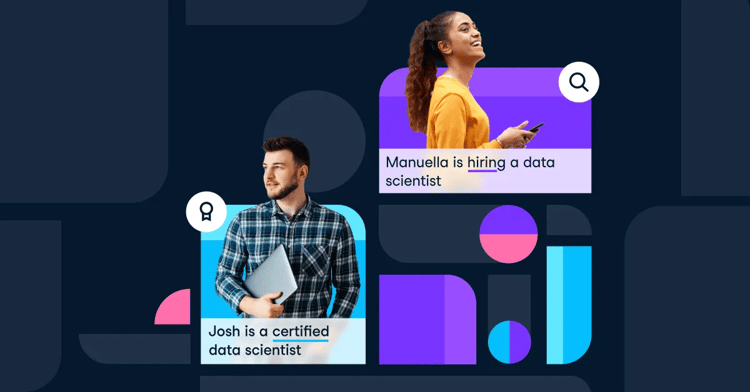
Anyone that’s been a recruiter or a hiring manager knows that hiring the right candidate is a complex process. On the one hand, many open job postings receive hundreds of job applications. But on the other hand, it's not uncommon that the vast majority of applicants are not actually qualified for the position. Recruiters may use ATS to screen resumes for key skills and relevant experience, but often still struggle to narrow in on the best candidates. This is where certification plays a key role and can be used to focus on candidates that have verified and proven skills, knowledge, and abilities that are key to successful job performance.
What makes an effective data practitioner?
The data industry has yet to fully align on job descriptions for such roles as data analyst or data scientist. We see that these titles are sometimes used interchangeably. Job expectations may vary from company to company, and sometimes even from team to team within the same company!
At DataCamp, we’ve taken on this challenge to create a competency model that best captures the most common competencies expected in data roles. We worked with industry leaders and hiring managers across different industries and consulted with the DataCamp Certification Advisory Panel to develop a list of data domains that most managers expect from their entry-level and junior data analysts and data scientists. As such, we aligned on these essential data domains for data scientists:
- Data Management
- Exploratory Analysis
- Statistical Experimentation
- Model Development
- Programming for Data Scientists
- Data Communication
- Business Acumen
And these for data analysts:
- Data Management
- Exploratory Analysis
- Statistical Experimentation
- Data Communication
- Business Acumen
The skill set of the modern data practitioner
Within these domains, we outlined the required competencies that an entry-level and junior data scientist or data analyst would need to be successful. As an example, the data management competencies required for an entry-level data scientist are:
- Perform standard data import, joining, and aggregation tasks using R or Python
- Perform standard cleaning tasks to prepare data for analysis using R or Python
- Assess data quality and perform validation tasks using R or Python
Once we validated this competency model with the industry, we developed DataCamp Certification to certify that our DataCamp learners have met the bar. Many DataCamp learners spend hundreds of hours working through courses, tracks, projects, and competitions. We wanted a way to bring credibility to their learning, to show they’ve acquired the skills, knowledge, and abilities necessary to succeed in a data role. To date, we offer two levels of certification: associate and professional. Our associate certification is aligned with entry-level expectations (0 years of experience), and our professional certification is aligned with junior-level expectations (1-2 years of experience). While the technical bar is higher for professional candidates, the biggest difference lies in the data communication and business acumen domains. We found that junior-level data professionals are expected to address and communicate business matters more so than entry-level candidates.
How DataCamp Certification proves data skills
DataCamp Certification uses advanced methods of assessment to measure recall, application, and analytic thinking in all of the tested domains. Each certified candidate has passed timed assessments that include multiple choice, fill-in-the-blank, and open coding questions. Additionally, candidates complete a practical exam. For our professional-level candidates, this practical exam is essentially a case study based on a real-world business scenario. Candidates perform their analysis and present their findings via video recording, where it’s manually graded by real, human industry experts. Our associate-level candidates compile a written report that answers several real-world questions, also manually graded by our experts.
So why hire a DataCamp Certified candidate for your open data role? While many of our certified candidates may not have the years of experience typically sought, they do have drive, ambition, proven ability to solve data problems, verified technical skills, and a hunger for more learning. DC Certified candidates have passed a rigorous assessment process to prove their ready, willing, and able to hit the ground running. Does that sound like the right candidate to you?
Hire DataCamp Certified talent today using DataCamp Recruit!
Hire job-ready data scientists
Get access to our pool of DataCamp certified professionals for free for 15 days.



